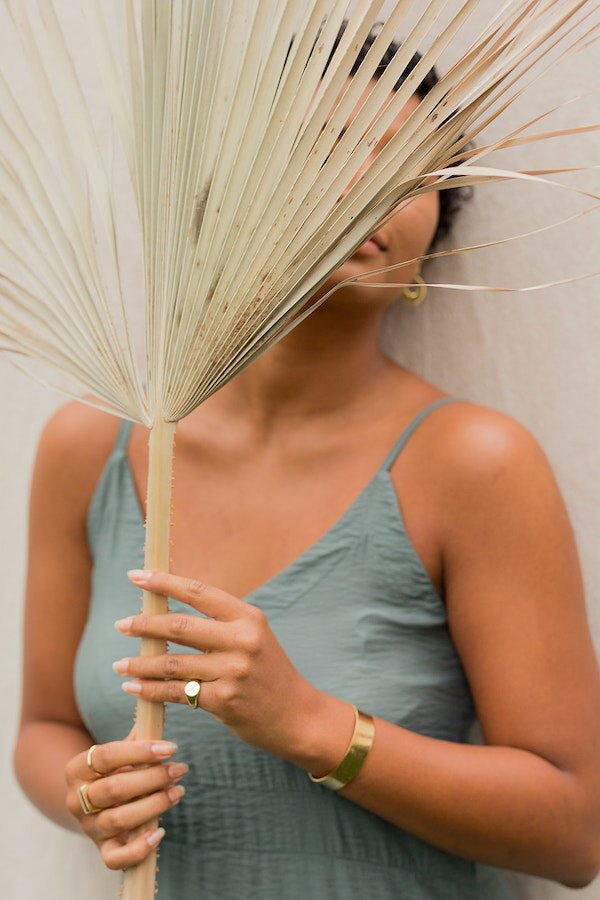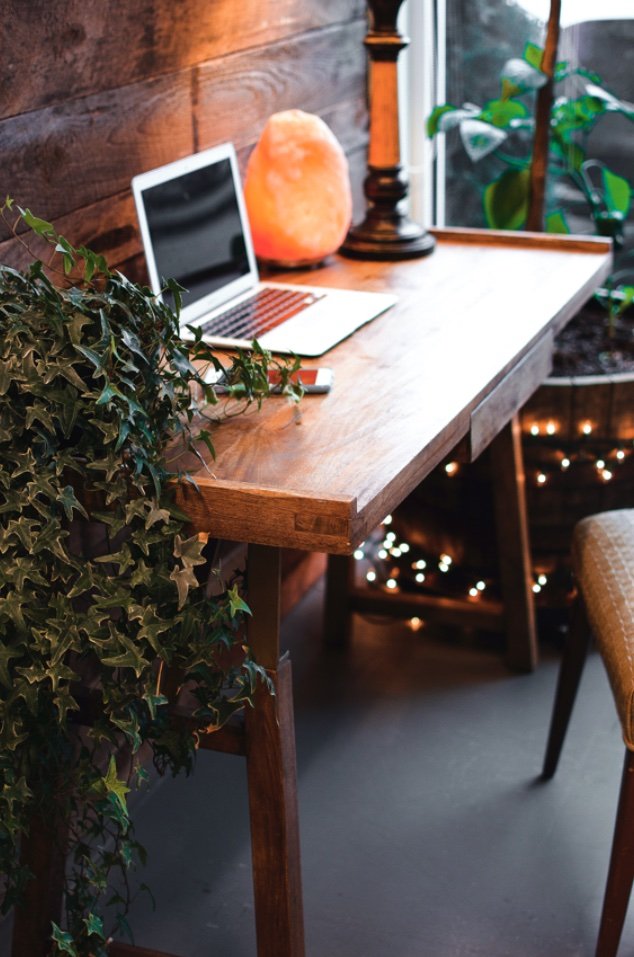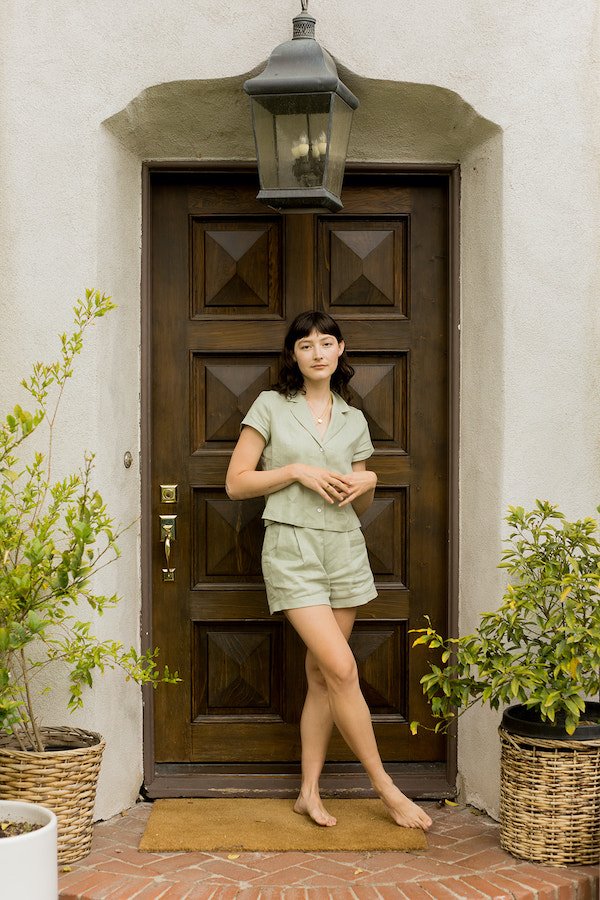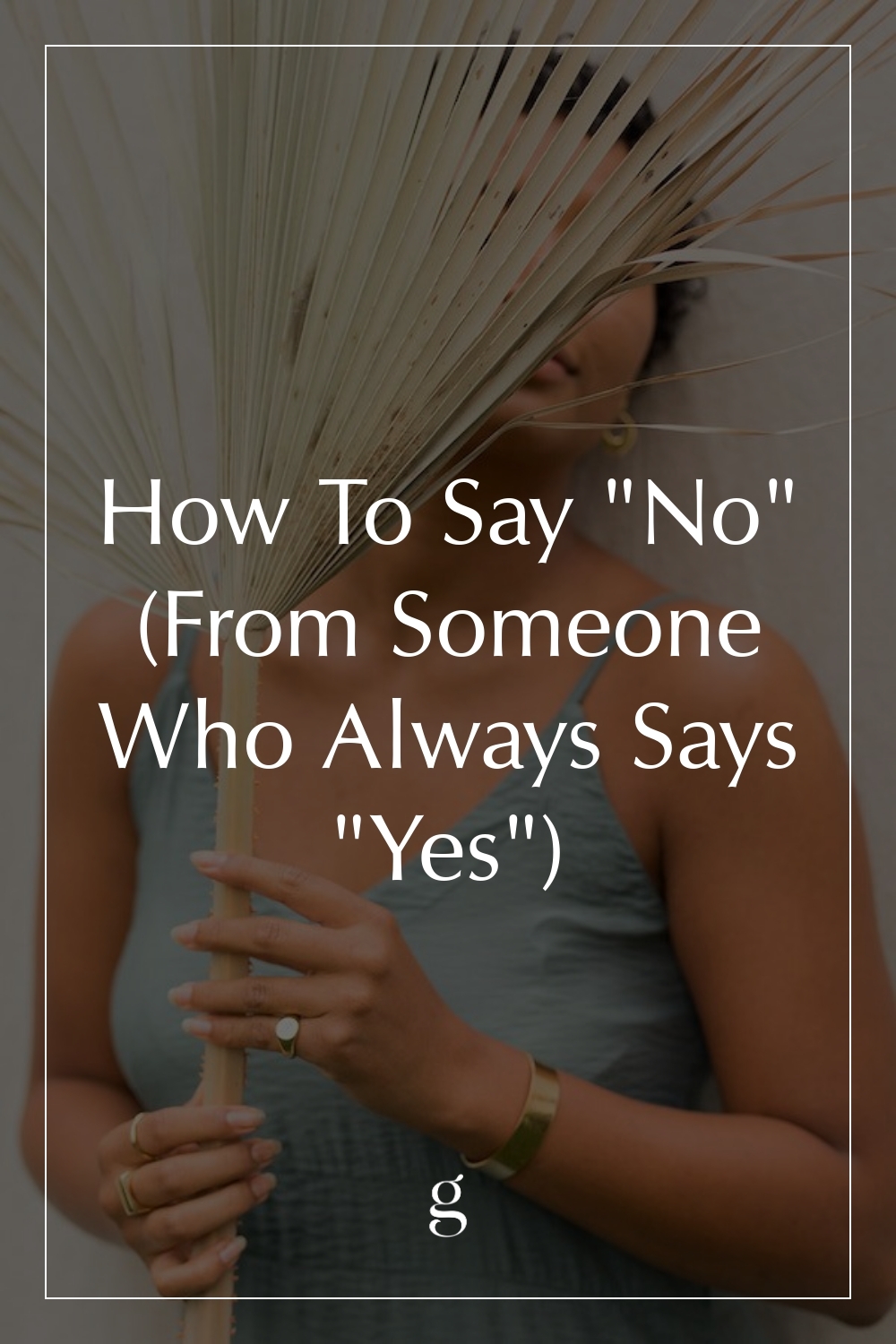
How To Say “No” (From Someone Who Always Says “Yes”)
Every time we say “yes,” we’re also saying “no.”
The word “no” looks strange in my mouth when I practice in the mirror, the hard “o” unfamiliar and forced. Instead, my lips instinctually curl into a toothy smile, my voice goes up a few octaves. Before I can pause to reflect on what it is that I actually want to say—what I need to say—I’m singing another “yes,” holding the note with a million exclamation marks.
Even when I’m not saying “yes” with my voice, I’m saying it with my body. I’m showing up for others and instinctually answering every text, email, and call. I’m readily available, perpetually prepared to take on yet another task.
Words hold value, and “yes” is currency. This is specifically true in Western cultures. We’re valued for our work and efficiency, for how much we can get done in a day. It should be of no surprise then that our default answer to every ask and invitation is a resounding “yes.”
“Words hold value, and ‘yes’ is currency.”
I recognize that part of my accommodating nature is my refusal to see my own limitations. Perhaps in trying to impress the world, I’m also attempting to prove something to myself. Do I feel more responsible or loyal when I say “yes”? Having others rely on you can sometimes offer a sense of purpose when there seemingly is none. And in a pandemic, what’s better than feeling like you’re needed?
But an agreeable personality goes beyond these more intimate thoughts. It’s also conditioning. “In our culture, girls are (still) typically rewarded for practicing good manners and taking care of others, whereas boys get high-fives for being brave or taking a risk,” says Simone Marean, Co-Founder and Executive Director of Girls Leadership, in an interview for The Washington Post. For women, there is a pull to please and be polite, to stretch ourselves for just one more project or person.
“For women, there is a pull to please and be polite, to stretch ourselves for just one more project or person.”
Yet, every time we say “yes” when we don’t want to, we say “no” to ourselves. We silence our own voice, refusing to listen to our wants or needs.
The Latin root word of “decide” literally means to “cut off.” And I’ve been thinking about this as I consider what’s lost every time I say “yes.” Hours that should be reserved for sleeping and self-care get used up in my effort to fulfill commitments. I cut myself off from urgent refueling and resting because I’m too busy completing the “yeses” I didn’t care about to begin with.
Of course, setting boundaries and embracing the word “no” can be a challenging mindset shift that requires practice. According to psychologists, our struggle to say “no” likely started when we were children, so there is a lot to unpack and unlearn. For many of us, we’ve been told “no” is impolite and uncooperative for much of our lives. And our assertions and opinions were squashed because of our young age. We didn’t know what we wanted or needed—or so the story goes.
“Practicing boundaries doesn’t mean we’re rude or apathetic. Perhaps instead, we actually care deeply.”
“As young children and teens, we have had ‘no’ drummed out of us,” says author and social psychologist Susan Newman, Ph.D. in an interview with the American Psychological Association. “We’re taught to do what our parents say and what authority figures tell us.”
But practicing boundaries doesn’t mean we’re rude or apathetic. Perhaps instead, we actually care deeply. There is immense value in saying “no” as it allows us to slow down and live more mindfully.
We can respect and care for others by respecting ourselves. It doesn’t serve anyone to show up or take on another project when we’re maxed out. And saying “no” this one time (or a bunch of times) doesn’t mean there won’t be more opportunities in the future. If someone does shame you or express anger when you set a healthy boundary, that’s on them, not you.
Creating margin in our lives means we make room for the tasks and people we want to. There is freedom in regaining control and thoughtfully considering how we spend our days. Saying “no” isn’t only about creating just enough room to breathe, either—but about rethinking this mindset entirely. Our schedules don’t always have to be at full capacity. Which makes me wonder: How would our lives look different if we said “no” to a lot and “yes” to a little?
“There is beauty and freedom in regaining control and thoughtfully considering how much we take on.”
Of course, we don’t always have ultimate control over our hours, and there are seasons of life when saying “no” isn’t always an option. Obligations and schedules vary for everyone. In these times, we can consider how to say “no” in smaller ways—like by leaving the dishes in the sink one night in exchange for extra rest.
Ultimately, it comes down to us deciding how we wish to spend the hours that we can control. For those of us who can choose, may we pause and be more conscious of our decisions, remembering that with every choice we make, something else will need to be cut away. But where there are losses, there are also gains.
How To Say “No”—A Quick Guide
I use the below questions whenever faced with a new yes/no question. Rather than giving that immediate response, I practice pausing so that I can check in with myself and make a wise decision.
What is the cost of saying “yes”? What will need to be “cut away” from my life to accommodate this request?
Why do I want to say “yes”? Do I genuinely want to help? Is this a project I care deeply about? Or am I perhaps looking for validation?
Who will my “yes” serve? Am I trying to please someone specifically? Am I fearful that by saying “no” I may let someone down?
Is there someone else that can help with this task or responsibility?
Does this “yes” honor my voice and internal values? Am I ultimately taking care of myself?
Is there something you can say “no” to today? Or—is there something that you really want to say “yes” to? Share yours in the comments below.
Kayti Christian (she/her) is a Senior Editor at The Good Trade. She has a Master’s in Nonfiction Writing from the University of London and is the creator of Feelings Not Aside, a newsletter for sensitive people.






